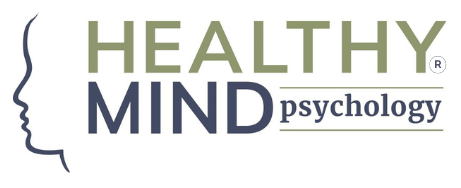“I shouldn’t be here … my problems aren’t bad enough for therapy.”
If these thoughts have come up for you before, you’re not alone. As much as the conversation around mental health has been evolving in recent years, there are still a number of negative perceptions of therapy. Perceptions like …
- I need a diagnosis before I can seek help
- Only people experiencing major struggles need therapy
- I should be able to figure this out on my own – therapy is a last resort
What do these thoughts and perceptions do?
They stop us from seeking help. They encourage us to push our problems to one side and ‘keep going’, often without any tools, or with bad habits, to get us through. They guilt us and shame us for even considering reaching out for support.
What counts as trauma?
Is all trauma equivalent? Well … no.
Some trauma stops us in our tracks, derailing us completely and requiring immediate, urgent help. We often refer to this type of trauma as big trauma or ‘big T’. Events which are classified as big trauma tend to be universally accepted as being traumatic and are easily identifiable as such. They are often life-threatening and come with life-changing consequences, such as war, rape, natural disaster or serious accident.
Some trauma is experienced as small cuts, scrapes and bruises. These are our psychological scars and invisible wounds. Wounds that hurt us and trigger us, that we mostly try to ‘manage’ or ‘cope with’ at the time, but that plague our lives with anxiety as we try to avoid experiencing them again. This is known as little trauma of ‘little t’ and includes experiences such as challenging and toxic relationships, microagressions at work, going through a breakup, losing a pet or dealing with societal expectations that we place on ourselves.
Does little t ‘deserve’ the trauma label?
Many professionals worry that sharing this label ‘trauma’ undermines those who have experienced highly impactful big traumas and that this implies that the trauma is equal. But using the term ‘little ts’ doesn’t have to take away from the significance of the ‘big Ts’. It’s not about invalidating, or discounting serious events. It’s not about equality of trauma. Instead, it’s about recognising the cumulative impact of little trauma, realising that often big trauma can be made even worse by the little ts that are behind it and understanding how those little ts may influence the way in which we’re able to respond to the big T, explaining why some of us are able to cope better or worse with the big trauma.
Through a better understanding of the interplay between big and little trauma, as well as removing the stigma around seeking therapeutic support for ‘small things’, we may find ourselves in a healthier position to respond to those highly significant, serious life events.
When should you seek support
Although therapy might not always be readily accessible to everyone, it is for anyone. It can benefit individuals experiencing little trauma, as well as those navigating big trauma. Therapy can be tailored to suit anyone’s personal needs, or specialised support sought out. It isn’t just for those who are going through serious trauma and many people may find themselves in a position to prioritise this luxury before hitting a certain struggle threshold or reaching a diagnosable condition.
It’s very common for those going through little trauma to experience these feelings:
- Concerns that their struggles aren’t big enough for therapy
- Anxiety about sharing ‘small’ problems
- Shame and guilt that they might be wasting their therapist’s time
No therapist will think that you are ‘wasting their time’ with little trauma. Little trauma can have a huge impact on our lives, manifesting as anxiety, sleep disturbance, poor eating habits and physical health issues and working to alleviate these struggles is hugely valid.
There is no requirement to wait for the ‘big’ or the breaking point to seek out therapeutic support.
‘Small’ problems DO count.
To find out how we can help you please contact us here.

